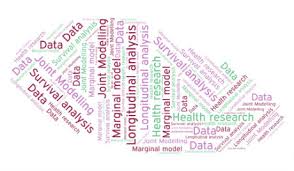
Principal speaker
Dr Kathryn Modecki
Longitudinal data afford terrific possibilities for asking unique and timely research questions. If you have access to longitudinal data, you have a number of options for testing innovative scientific hypotheses. In this workshop we will discuss different possibilities for tying longitudinal designs to specific research theories and associated methodological options.
A brief over-view will be provided to get you thinking about the different ways we might conceptualize and model change, differences, and "movement." We will cover a selected range of possibilities, with a focus on within-person (or animal, plant, or cell) change over time.
We will leverage the final 30 minutes to collectively brainstorm useful (and perhaps novel) possibilities for current projects and grant applications. And throughout, suggested references for further reading and training will be offered.
Readings:
The session will be as inclusive as possible. However, you will get a great deal more out of our time together if you have brushed up on regression. Because, structural equation modelling generally (and latent growth curve modelling, growth mixture modelling, latent transition modelling, longitudinal mediation models, etc.) are all regressions, there is no better way to learn advanced methods then to get a strong handle on regression.
Recommended background reading:
Cohen, J., Cohen, P., West, S. G., & Aiken, L. S. (2013). Applied multiple regression/correlation analysis for the behavioral sciences. Routledge.
Key readings:
Panel models-
Selig, J.P., & Little, T.D. (2012). Autoregressive and cross-lagged panel analysis for longitudinal data. Handbook of Developmental Research Methods, 265-278.
Growth curves-
Curran, P. J., Obeidat, K., & Losardo, D. (2010). Twelve frequently asked questions about growth curve modeling. Journal of Cognition and Development, 11(2), 121-136.
Mixture models-
Jung, T., & Wickrama, K. A. S. (2008). An introduction to latent class growth analysis and growth mixture modeling. Social and Personality Psychology Compass, 2(1), 302-317.
Latent-transition models-
Goldweber, A., Bradshaw, C. P., Goodman, K., Monahan, K., & Cooley-Strickland, M. (2011). Examining factors associated with (In) Stability in social information processing among urban school children: a latent transition analytic approach. Journal of Clinical Child & Adolescent Psychology, 40(5), 715-729.
Recommended text:
Little, T. (Longitudinal structural equation modelling)
Event categories
RSVP
RSVP on or before Friday 23 April 2021 17.41 pm, by email RED@griffith.edu.au , or via https://events.griffith.edu.au/1wEaEq